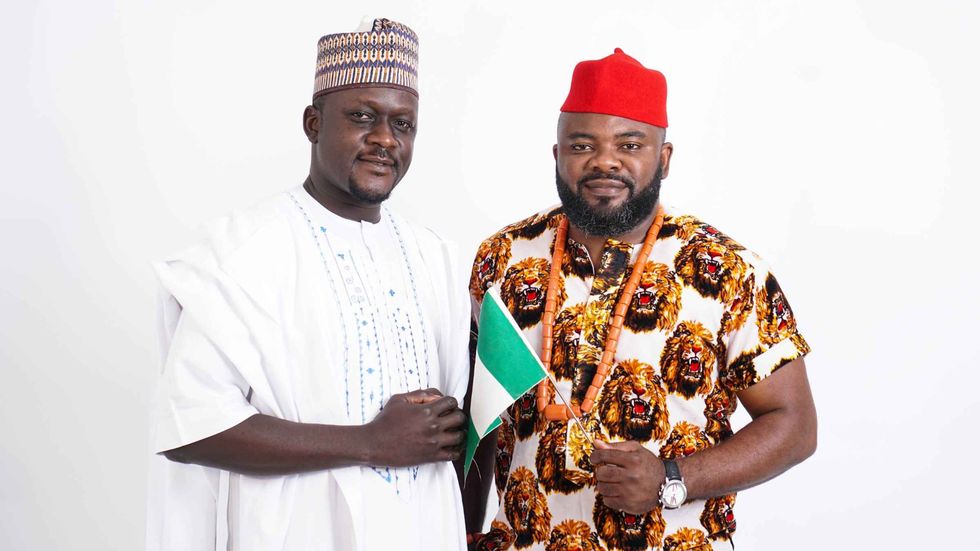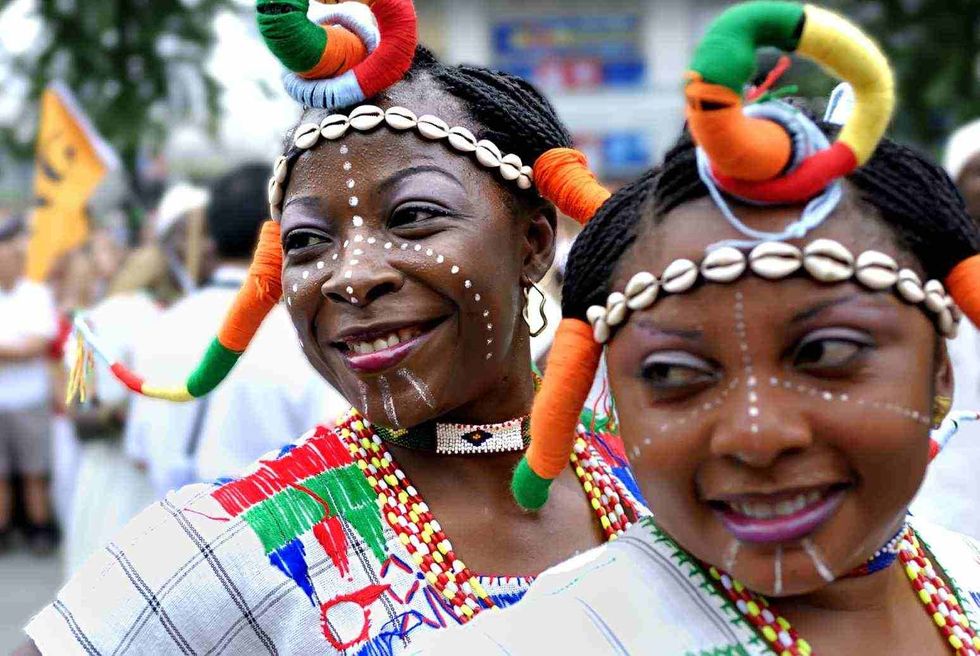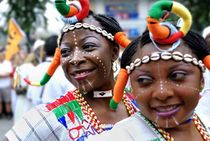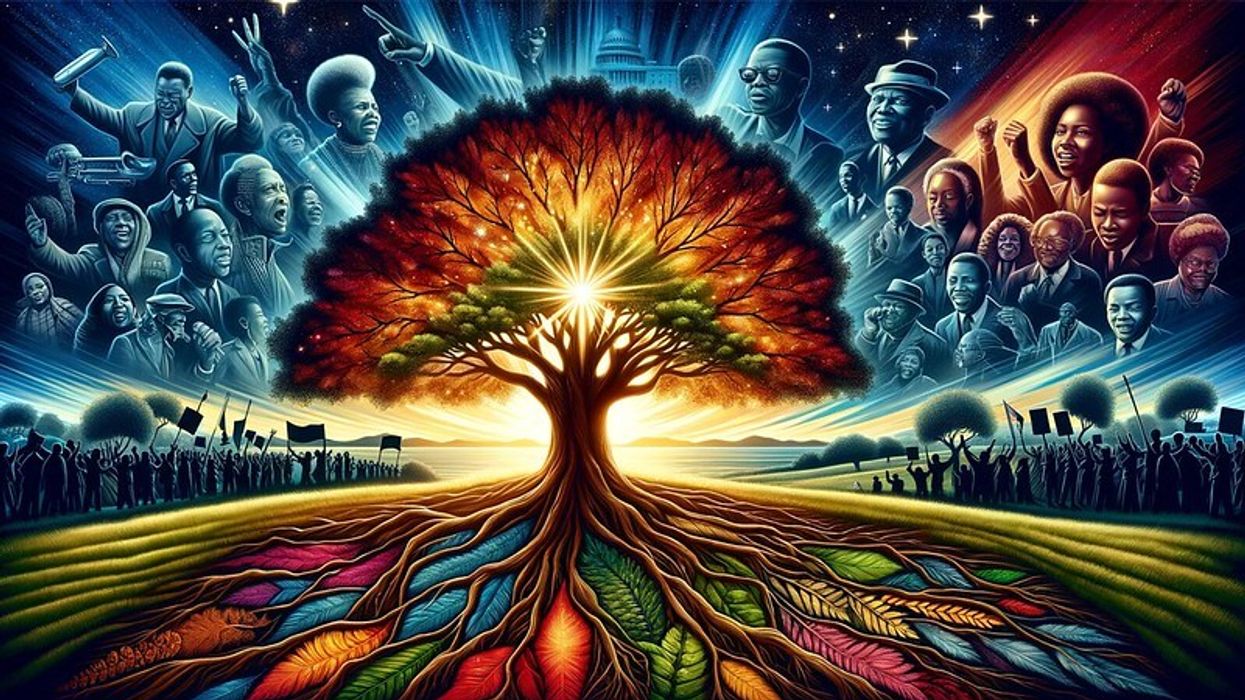90 Nigerian Culture Facts That Shed Light On African Countries

Culture is an important part of any country.
Culture is a way of life that is deeply rooted in the traditions and beliefs of a group of people. Nigeria is known for its rich culture and traditions.
This part of West Africa has a diverse population that reflects this culture and makes it unique on the continent. The country is also home to several ancient tribes that still have their traditions and cultural practices. This article will help you learn more about Nigerian culture and the different aspects of it that make it so unique.
Have you ever wondered what's considered strange in Nigeria? If you're planning a trip there and want to know some facts about Nigerian culture, then read this list!
History Of Nigerian Culture
Did you know that the average African family is made up of over seven people? This is just one of many interesting facts about the African Union and culture. You'll find more in this amazing resource article.
- Nigeria is an oil-rich populous country in Western Africa and currently has the sixth-highest population in the world.
- Archaeologists have discovered the remains of a Neolithic settlement in Nigeria that dates back to 12,000 BC.
- Northern and southern Nigeria have vastly different histories.
- After the fall of the Kanem-Bornu Empire in the late 18th century, which had reached its peak between 1375 and 1600, the region fell into decline until it was eventually conquered by Fulani Muslims in 1805.
- As the decades passed, Northern Nigeria gradually came under British influence while Southern Nigeria was administered as a separate colony called British Southern Cameroons.
- Nigeria is a collage of distinct regions, including deserts, plains, swamps, mountains, and steamy jungles.
- Nigeria was known by its Latin name when it first came into existence as a colony and later a protectorate of the British Empire.
- Later, it became an independent African state named Lagos before becoming a Republic in 1963 under the name Africa's Giant
- Trade between North Africa and the Saharan region goes back a long way.
- Such trade began around 2,000 years ago when goods like salt, hides, and livestock were sent across the desert in exchange for items like gold, ivory, and manufactured goods.
- Increased contact with Islamic people made the Kanem-Borno Empire - which lay to the east of modern-day Lake Chad- give up its religion and start practicing Islam.
- Adopting Islam also led to many other groups doing the same over time - but it also affected how people in this part of Africa lived their lives too: because laws following from the Quran are very different from those that existed before.
- The south however remained mostly Christian into many later times though most areas there eventually gave up these religions as well!
- As the slave trade declined, a new economy began to take root.
- Nigeria - a nation that had once actively participated in the international slave trade - began to focus on raw materials, agriculture, and locally made goods.
- Their economy began to grow heavily based on these new sources of revenue.
- A new class of Nigerian merchants became prominent as they took advantage of this growing means of commerce.
- Many of these merchants were deeply influenced by Western economic and social norms, becoming heavily involved in local politics; they questioned their now-useless traditional rulers for their empty display of authority and ridiculous standards of conduct.
- The mission schools created an educated elite of African people who sought increased contact with Europe and the Westernization of Nigeria and other parts of West Africa.
- This populous country has a population of is 213 million people as of 2021.
- Their National Independence day is observed on October 1.
Customs And Traditions Of Nigerian Culture
It is important to know that different cultures have different beliefs and practices. We will be shedding light on the rich cultures of Nigeria here.
- In Nigeria, whether you’re a recent couple or have been together for years, relationships are not considered official until the two of you are publicly introduced.
- The bride-to-be’s family holds the traditional introduction ceremony in their home.
- Nigerians have three weddings.
- The first type of wedding is the traditional one. Depending on what part of the country you’re from this could be a ritual that involves bride price, flogging, mass prostrations, wine carrying, and the likes.
- Then there are the church/mosque weddings.
- In Nigeria, a couple's union is recognized by the provisions of tradition, religion, and civil law.
- Among the Igbo people, a Yoruba tribe that makes up a significant chunk of Nigeria's population, omugwo is popular.
- In Igboland, where the practice originated, it’s called 'Iwagwaran omo' and among the Annang people in Delta State, also known as Umana.
- After a mother gives birth to her baby, it’s tradition for the grandmother of the new baby to come and help look after the mother and her newborn baby or babies.
- The new mum doesn’t have to lift a finger as everything is taken care of by family members who were not only brought in to do specific tasks like cooking special meals but also taking care of household chores like cleaning and bathing the new baby in pepper soups while they were at it.
- They last for at least three months.
- Many of Nigeria’s Igbo people use the Nwaboy method of apprenticeship.
- Nwaboy is a way to spread wealth among kinsmen.
- This tradition requires that a young apprentice and mentor continue to study together until they are both of the opinion that the apprentice is ready to start his own company.
- Sunday rice is a weekly fixture in homes across Nigeria.
- People who don’t prepare their version of this traditional staple after church services may find themselves feeling hungry by the time they get home.
- Sunday rice is a meal of plain-white rice served alongside stew on Sundays.
- On special occasions, it's jollof rice, white rice flavored with tomatoes and pepper stew, and chicken, beef, or fish.
- Like naming ceremonies and baptisms, baby dedications are common in many different religious faiths in Nigeria.
- Baby dedications’ purpose is to publicly present thanks in the arrival of one's child.
- During African American celebrations like weddings, graduations, birthdays, or child dedications, money is often rained down upon groups of dancers on the dance floor.
- Many cultures think it is disrespectful to greet, eat, hand someone something over, or return an item you have borrowed with the left hand.

Significance Of Nigerian Culture
If you are planning on visiting Nigeria or you are interested in its culture, you need to have a good understanding of the different parts of Nigerian culture.
- Nigeria is endowed with plenty of natural resources.
- If you're in the oil market, Nigeria has natural gas reservoirs that are higher than any other country on the African continent.
- The culture of Nigerians is complex, but it binds them in a historical fabric that carries through from generation to generation.
- When we examine Nigerian people, we find many differences of opinion and ways of life all held together by their cultural heritage.
- While English is the official language of Nigeria, there are over 500 different languages spoken throughout the country.
- These range widely from Yoruba to Ibo and on to various other languages as well.
- Other symbols used to communicate and share stories include music, poetry, dance, painting, sculpting, drawing, and writing.
- They are vitally important parts of their culture.
- Nigeria's population is eight times larger than the countries that surround it.
- It contains large linguistic and ethnic variances amongst Africans.
- As a country with the largest population of youth in the world and as the sixth most populous country overall, Nigeria has a wealth of potential that remains untapped.
- Kofar Mata Dye Pit in Kano is located in Nigeria and was established in 1498.
- This makes it the oldest active dye pit in Africa.
- It continues to preserve a traditional tye and dye production process used in northern Nigeria.
- The methods and skills used are ancient, traditional ones that have been handed down from century to century.
- In 1986, Wole Soyinka became the first black African playwright to earn a Nobel Prize in Literature.
- Nigeria is well-known for its beautiful and diverse collection of butterflies with over 1000 species.
- The country boasts an exceptional degree of biodiversity and it’s also home to an abundance of fauna and flora.
- Nigeria houses two of the most well-known UNESCO World Heritage Sites: Sukur Cultural Landscape located in Adamawa and Osun-Osogbo Sacred Grove in Osun.
- Nollywood is a Nigerian film industry that continues to defy the odds and break records.
- The African country has established itself as one of the leaders in contemporary music creation and has brought African music back into popular culture through its dynamic use of technology.
- We appreciate artists like Burna Boy, Wizkid, Davido, and Tiwa Savage for taking Afrobeats to new levels.
- Pepper soup, beef stew, and jollof rice are a few traditional Nigerian dishes every aspiring chef should make.
- Nigeria ranks second in the continent of Africa for the consumption of palm oil. The largest producer of this crop is currently Nigeria.
Ethnic Groups In Nigerian Culture
Major ethnic groups in Nigeria have some unique traditions, rituals, and beliefs that are all part of their culture. Some of these cultural practices are not being practiced by the younger generation, and some of these practices are becoming extinct. This blog will look at some of the unique traditions in Nigeria.
- One way that Nigeria is unique is through its heritage.
- Nigeria boasts of 300 or more different ethnic groups.
- Igbo, Hausa, Kanuri, Fulani, Yoruba, Ijaw, Ibibio, and Tiv are some of the major groups that make up the maximum population of Nigeria.
- Kanuri, Fulani, and Hausa peoples are a majority in the north region of Nigeria.
- The Tiv people are generally located in the mid-southern region of Nigeria.
- In Nigeria, followers of many religions live cooperatively with these groups including Christianity and Islam.
- The majority of people living in the northern region of Nigeria belong to the Hausa ethnic group, which is over-represented by Muslims.
- The Yoruba people live predominantly in the southwestern and north-central parts of Nigeria.
- Igbo-dominated areas are found in the south-central and southeastern parts of Nigeria.
- To most groups and individuals who occupy this region of Africa, it's believed that their ancestors came from various parts of the continent over time.
- Some think that most Nigerians are descendants of the Berber people from North Africa, while others believe they all have ties to Ethiopia.
- Each group has a story about how their lineage got here as well, with some tales going beyond 20,000 years.
- The Yorubas have a unique practice called 'Ori-Okun'. Meanwhile, the Hausas are known for the 'Manchirigba'.
- The Ijaw people make up about 10% of the Nigerian population and are located in the delta of the Niger River.
- They have an average household size of five to six which is very low compared to one's in the rest of Nigeria.
- They mostly work as fishermen and farmers because they primarily rely on natural resources for their sustenance.
- Due to their way of life, 70% of them practice Christianity.
- The Bini people live in Nigeria and neighboring areas.
- They have also spread across Ondo and Rivers states.
- The Edo people live in Southern Nigeria and identify themselves as descendants of the ancient Benin Empire.
- They speak the Edo language and several other dialects.
- It is estimated that the Kanuri tribe comprises 4% of Nigeria's population.
- Members of this tribe can be found in the northeast of the country.
- The Ibibio people reside primarily in the southeastern region of Nigeria.
- They make up 3.5% of the country’s population, making them a minority group.
- In many cultures, Nigerian women are simply seen as mothers, sisters, daughters, and wives, often with little regard to other aspects of their personalities or hobbies.
- Agbada is a full formal Yoruba attire worn by Nigerian men, although it's also considered formal wear in other West African nations.
- It is composed of three pieces of clothing: tie-up pants that narrow towards the ankles, a long-sleeved shirt that could be worn with or without a sleeveless gown over it.
Nigeria is a country with a diverse culture and tradition. Every part of the country has a unique culture and traditions. However, most of the cultures share some traditions in common. In this article, we will look at different ethnic groups in Nigeria and their unique traditions and rituals.
Although primary education is officially free and compulsory, many eligible Nigerian children don't take up an opportunity to study at a public school.
We hope you found the above post on Nigerian culture to be an informative read! While you may have been aware of some of these facts, you may have been surprised by the ones you did not know.
Whatever the case, we hope you enjoyed reading about the intricacies of culture in Nigeria. If you are planning a visit to Nigeria anytime soon, we hope you will keep these facts in mind and remember them. We also hope you will have a great trip!
Main image credit: Jack.Q / Shutterstock.com
We Want Your Photos!
More for You
Bachelor of Technology specializing in Computer Science

Shubhra ShuklaBachelor of Technology specializing in Computer Science
With experience in digital marketing, social media strategy, and creative copywriting, Shubhra is a skilled writer and editor at Kidadl. She holds a Bachelor's degree in Computer Science Engineering from Gujarat Technological University/Narnarayan Shastri Institute of Technology (N.S.I.T) and believes in the power of words to influence people. When not working, she enjoys spending time with family and friends.
Bachelor of Arts specializing in English Literature

Nishtha DixitBachelor of Arts specializing in English Literature
Nishtha is an experienced SEO writer and editor, with a passion for writing and self-expression. She is currently pursuing an undergraduate major in Literature and Communication and a minor in Political Science from the University of Delhi. Nishtha has completed a certificate master course in English from the British Council and has been appointed as the editor for the bi-monthly magazine of the University of Delhi.
Disclaimer
1) Kidadl is independent and to make our service free to you the reader we are supported by advertising. We hope you love our recommendations for products and services! What we suggest is selected independently by the Kidadl team. If you purchase using the Buy Now button we may earn a small commission. This does not influence our choices. Prices are correct and items are available at the time the article was published but we cannot guarantee that on the time of reading. Please note that Kidadl is a participant in the Amazon Services LLC Associates Program, an affiliate advertising program designed to provide a means for sites to earn advertising fees by advertising and linking to Amazon. We also link to other websites, but are not responsible for their content.
2) At Kidadl, we strive to recommend the very best activities and events. We will always aim to give you accurate information at the date of publication - however, information does change, so it’s important you do your own research, double-check and make the decision that is right for your family. We recognise that not all activities and ideas are appropriate for all children and families or in all circumstances. Our recommended activities are based on age but these are a guide. We recommend that these ideas are used as inspiration, that ideas are undertaken with appropriate adult supervision, and that each adult uses their own discretion and knowledge of their children to consider the safety and suitability. Kidadl cannot accept liability for the execution of these ideas, and parental supervision is advised at all times, as safety is paramount. Anyone using the information provided by Kidadl does so at their own risk and we can not accept liability if things go wrong.
3) Because we are an educational resource, we have quotes and facts about a range of historical and modern figures. We do not endorse the actions of or rhetoric of all the people included in these collections, but we think they are important for growing minds to learn about under the guidance of parents or guardians.







